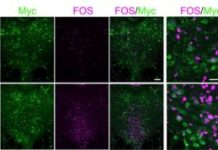Five years after Alex Trebek shared publicly his diagnosis of stage IV metastatic pancreatic cancer, therapies for the disease remain few, and limited to specific patient subgroups.
Metastatic pancreatic cancer accounts for approximately 80–85% of all pancreatic cancer diagnoses, a treatment market that is projected to grow at a compound annual growth rate of 12.3%, from $2.92 billion last year to $5.84 billion by 2030 (Grand View Research). Even worse, according to the American Cancer Society, the five-year survival rate remains tragically low at 13% for all stages and just 3% for distant pancreatic cancer. And the treatment cost per patient exceeds $100,000, a staggering expense shown in a 2019 study.
Within those daunting numbers is an opportunity, says Actuate Therapeutics, which is among companies focused on treating pancreatic cancer. Actuate’s pipeline consists of injection and oral forms of elraglusib, whose lead program has generated positive clinical data in patients with the nation’s third leading cause of cancer death.
This past spring at the American Society of Clinical Oncology (ASCO)’s Annual Meeting, Actuate presented positive topline data from the Phase II Actuate-1801 Part 3β trial (NCT03678883) assessing elraglusib in combination with the chemotherapy regimen of gemcitabine/nab-paclitaxel (GnP) in first-line metastatic pancreatic ductal adenocarcinoma (mPDAC). Data showed an increase in median overall survival of 10.1 months (155 patients), with a 37% reduction in the risk of death, compared to GnP alone (7.2 months, 78 patients).
Among 29 efficacy evaluable patients from a 42-patient intent to treat popultion, elraglusib showed median overall survival (mOS) of 15.3 months with confirmations of complete response (CR) in two patients and partial response in nine others. When a separate single-arm trial is included, elraglusib has led to four CRs among 200+ patients.
Actuate has highlighted its data since it compares favorably to the mOS of 8.5 months seen in the 2013 MPACT trial (NCT00844649) comparing GnP to gemcitabine alone, and the mOS of 11.1 months in the 2020-21 NAPOLI 3 trial (NCT04083235) comparing Nalirifox, Ipsen’s Onivyde®-based treatment regimen, to GnP.
Actuate-1801’s four CRs is double the two CRs among 800 patients of NAPOLI 3 and MPACT, Daniel M. Schmitt, Actuate’s president and CEO, told GEN.
“Meaningful advance”

“I’ve got one CR for every 50 patients, they’ve got one for every 400,” Schmitt said. “Everything points at this drug [elraglusib] being highly active and meeting the endpoint the FDA is most interested in, which is increase in overall survival. And there has been no meaningful advance in pancreatic cancer in the last 13 years. And this would be the first one.”
Schmitt said Actuate has incorporated its data into an amended investigational new drug (IND) application and will support regulatory submissions with FDA and the European Medicines Agency (EMA) planned by year’s end and continuing into early 2026. Actuate is also seeking the FDA’s Breakthrough Therapy designation—and received feedback stating that the agency will require elraglusib shows a substantial improvement in the treatment of mPDAC over all existing standard of care therapies, including regimens that contain irinotecan.
The Actuate-1801 trial enrolled 286 patients with mPDAC and no prior systemic treatment for metastatic disease, randomized 2:1 to the elraglusib/GnP combination or GnP alone. The primary endpoint was median overall survival. Actuate-1801 remains ongoing.
In September, Actuate reported 22 patients in the elraglusib plus GnP arm either in active treatment or survival follow-up, ranging from 20 to 42 months in time on study—compared with just three patients in the GnP arm, with time on study ranging from 21 to 23 months.
Actuate-1801 is one of three trials that are assessing elraglusib in combinations with chemotherapy drugs.
Researchers from Harvard Medical School and Massachusetts General Hospital are leading a Phase II trial (NCT05077800) evaluating elraglusib, Folfirinox, and losartan in patients with metastatic pancreatic cancer. In September, investigators from Actuate joined partners at UPMC Hillman Cancer Center and Incyte on the Phase I RiLEY trial (NCT06896188) studying elraglusib with a modified version of Folfirinox and Incyte’s programmed death receptor-1 (PD-1)–blocking antibody Zynyz® (retifanlimab-dlwr) in patients with advanced pancreatic cancer. Early data from the studies has been positive.
“Backbone” therapy potential
“I’ve been doing this a long time. I’ve never heard of putting another agent on top of chemo, and patients feeling better,” Schmitt said. “It’s a very unique situation with elra, a drug that has the potential to be the new backbone therapy in this highly aggressive and deadly disease, because we’ve treated over 500 patients to date, across a number of chemotherapeutic combinations. The safety profile is exceptional, and the drug is very active. So, we’re very excited about it.”
Standard of care for pancreatic cancer now varies by stage: Early-stage resectable tumors are usually removed via surgery while more advanced or metastatic forms of the disease usually result in chemotherapy. Swiss-based Novocure says it anticipates approval in the second half of 2026 for its Tumor Treating Fields (TTFields) wearable device designed to treat locally advanced pancreatic cancer, now under FDA review.
However, the past 12 months have seen two FDA approvals of therapies for pancreatic cancer:
- Bizengri® (zenocutuzumab-zbco), a bispecific HER2- and HER3-directed antibody approved in December 2024. Bizengri is indicated for adults with advanced, unresectable or metastatic pancreatic cancer harboring a neuregulin 1 (NRG1) gene fusion, marketed in the U.S. by Partner Therapeutics under license from Merus.
- Cabometyx® (cabozantinib), a kinase inhibitor approved in March to treat a subset of pancreatic cancer patients diagnosed with pancreatic neuroendocrine tumors (pNETs). Exelixis markets Cabometyx.
Elraglusib (formerly 9-ING-41) is a selective small-molecule inhibitor of glycogen synthase kinase-3 beta (GSK-3β), an enzyme found to drive tumor progression by promoting cancer cell proliferation, resistance to chemotherapy, and survival in progressive and metastatic disease. Elraglusib is designed to target molecular pathways involved in promoting tumor growth and resistance to conventional cancer drugs such as chemotherapy through the inhibition of nuclear factor kappa-light-chain-enhancer of activated B cells (NF-kB) and DNA Damage Response (DDR).
Elraglusib is the lead compound of Actuate, which spun out of the University of Illinois Chicago (UIC) and Northwestern University in 2015. Alan P. Kozikowski, PhD (then of UIC and now scientific advisor, Hadassah BrainLabs) and UIC professor Irina Gaisina, PhD, initially identified GSK-3β inhibitors as potential drugs for neurodegenerative disorders—but switched their focus to cancer after realizing that GSK-3β inhibitors had the potential to reduce tumor cell survival.
The researchers synthesized elraglusib (then called 9-ING-41) to selectively inhibit GSK-3β and resist metabolic degradation by cancer cells, in collaboration with Northwestern’s Center for Developmental Therapeutics, then led by Andrew P. Mazar, PhD—who is now Actuate’s chief operating officer and co-founded the company with Schmitt. The combined research team validated 9-ING-41, in in vivo glioblastoma multiforme and other preclinical rodent models, and UIC licensed the technology to Actuate.
Beyond pancreatic cancer
Elraglusib’s mechanism of action, Actuate reasons, can treat several other forms of cancer as well, including:
- Colorectal cancer—Actuate is also planning a Phase I trial for Actuate-2401 designed to study oral tablet elraglusib in metastatic and refractory forms of the disease.
- Melanoma—Phase I trials are being planned by Actuate for its Actuate-2401 program assessing oral tablet elraglusib in metastatic and CPI refractory forms of the disease.
- Ewing sarcoma—The Phase I Actuate-1902 trial (NCT04239092), evaluating the treatment in advanced, refractory solid-tumor cancers, identified Ewing sarcoma (EWS) as a potential second indication for elraglusib injection.
“We plan to advance the clinical program towards a Phase [II] study in children, adolescents, and adults with relapsed/refractory EWS in 2026, subject to available funding,” Actuate stated in its most recent Form 10-Q quarterly report, filed November 13.
According to that report, Actuate finished the third quarter with a net loss of $5.407 million, improved from a $5.971 million net loss in Q3 2024. While Actuate chopped its R&D expenses year-over-year, to $2.178 million from $3.757 million, the company’s general and administrative expenses more than doubled to $3.294 million from $1.635 million a year earlier.
For the first three quarters of this year, Actuate narrowed its net loss to $17.674 million from $18.602 million in January–September 2024. Actuate also ended the third quarter with cash and cash equivalents of $16.925 million—nearly double the $8.642 million reported as of December 31, 2024—thanks to a series of capital raising events this year that included:
- March: A common stock purchase agreement or “committed equity facility” that generated $3.8 million in net proceeds during Q1–Q3 2025 through Actuate selling 539,967 shares of its common stock to an entity of B. Riley. The agreement allows Actuate to sell either $50 million of newly issued shares of its common stock or 3,904,374 shares of common stock, whichever is less.
- June: A nearly $4.7 million private placement of common stock and warrants with institutional and accredited investors that included Bios 2024 Co-Invest, a limited partnership co-founded by its managing partner Aaron G.L. Fletcher, the chairman of Actuate’s board. The private placement generated aggregate net proceeds of $4.592 million.
- September: A $17.25 million public offering that generated net proceeds of $15.574 million through the sale at $7 per share of 2,464,286 shares of Actuate’s common stock, including exercise in full of the underwriter’s option to buy additional shares.
Runway to Q2 2026
Actuate acknowledged in its Form 10-Q that its cash and cash equivalents will not satisfy its operational and capital requirements beyond the second quarter of 2026, the limit of its financial runway, without raising additional capital.
“If events or circumstances occur such that the Company does not obtain additional funding, it may be necessary to significantly reduce our scope of operations to reduce the current rate of spending through actions such as the need to delay, limit, reduce, grant rights to develop or terminate its product development or even cease operations,” Actuate acknowledged.
“Based on the above matters, we have concluded that there is substantial doubt regarding the Company’s ability to continue as a going concern.”
Schmitt said Actuate is considering two scenarios for its future: Organic growth via expansion, and a merger-and-acquisition (M&A) deal. Actuate’s workforce consists of a core team of about 12 plus consultants used as needed, with expertise in manufacturing, R&D, CRO [contract research organization] management, and regulatory management.
Whether Actuate grows its head count will hinge on FDA feedback about elraglusib. If the agency encourages the company to submit a New Drug Application (NDA) for approval, Schmitt envisions Actuate expanding its regulatory staff, as well as its clinical stuff for a trial of oral elraglusib. If the FDA insists on a Phase III trial, headcount would likely grow further on the clinical side. And should Actuate decide to build out around elraglusib, the company will focus adding governance, pricing, and commercialization staffers.
“We’re going to run a two-prong approach here. One prong is, we’re going to build it as though we’re going to run it. But we’re also engaging with big pharma,” Schmitt said. “Because if you think about the number of opportunities set for this drug and the breadth of the potential, you’d want to get that going as quickly as possible with as many resources as possible, and I think that’s more of a big pharma play.”
“So, we’re talking to big pharma about this, but I’m not reliant on them,” Schmitt added. “I’m going to build this so I can run it myself until somebody makes me an offer I can’t refuse.”
The post Backbone Potential: Actuate’s Elraglusib Shows Promise vs. Pancreatic Cancer appeared first on GEN – Genetic Engineering and Biotechnology News.













